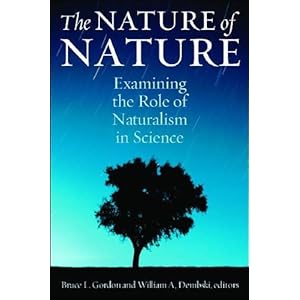“Twentieth century dematerialism”?

A late 2010 cosmology book features cosmologist Paul Davies as editor. Davies is known for a number of reflections on extraterrestrials.
Information and the Nature of Reality: From Physics to Metaphysics
“This is the anthology we have been waiting for … seminal papers deal with matter through the history of Greek thought, seventeenth-century materialism and twentieth-century dematerialism, the need for a new scientific world view in the light of the quantum nature of the universe, and the storage and transmission of information in biological systems with the new knowledge of their genomes and development … Philosophers, theologians and scientists all have their say, wrestling with the theme of God as the ultimate informational and structuring principle in the universe.”
Professor Sir Brian Heap, St Edmund’s College, President, European Academies Science Advisory Board, German Academy of Sciences Read More ›
 A friend writes to say that
A friend writes to say that